Back Injury Due to Trauma
A car accident related back injury is one of the most common injuries people suffer in a crash. If you have been in a car accident, there are some things you should know if you are suffering from back pain.
From whiplash to herniated discs, these injuries can have long-lasting consequences, affecting one’s mobility, comfort, and overall quality of life. Understanding the complexities of car accident related back injury is crucial for accident victims seeking legal recourse and compensation. In this article, we delve into the nuances of back injury due to trauma, exploring the types of injuries, their symptoms, the challenges they pose, and the importance of seeking legal assistance from experienced professionals specializing in car accident related back injury.
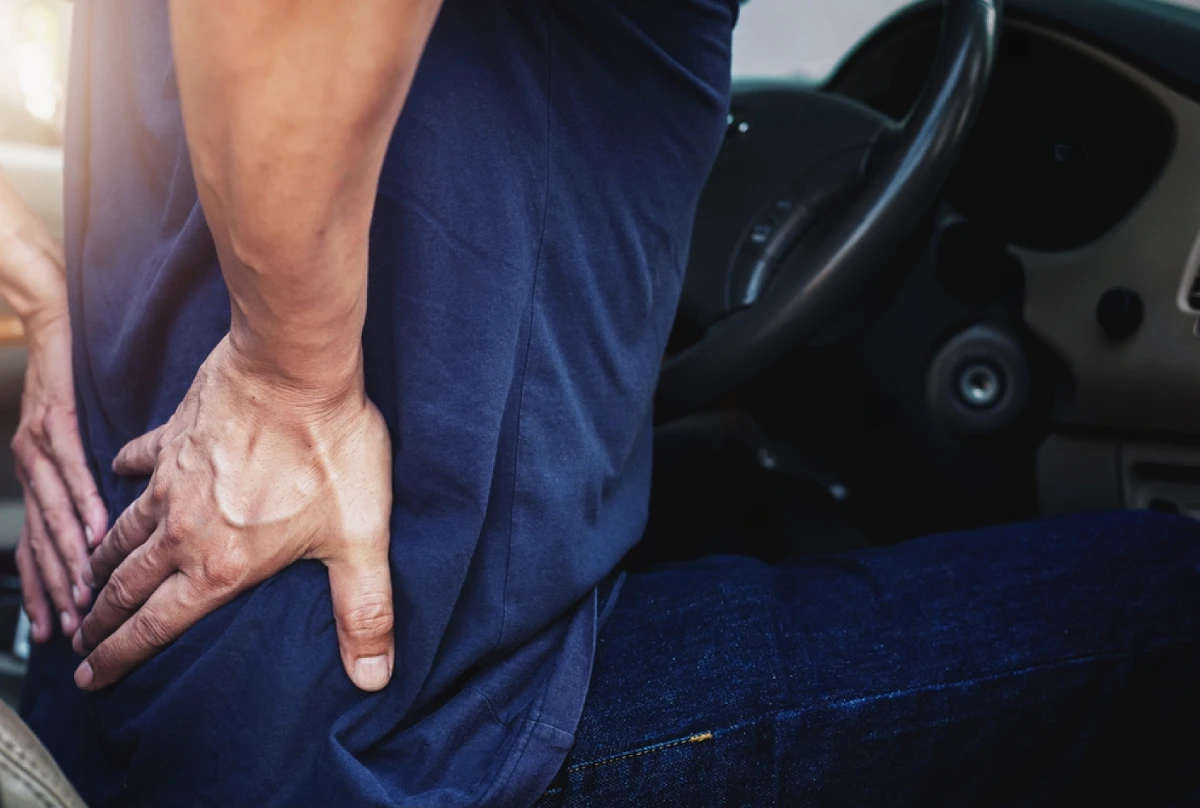
Your back, or spine, is composed of about 30 vertebrae. The vertebrae hold together in a column by a combination of muscles, tendons, and ligaments. Your vertebrae are bones that have shock absorbing disks between them. Injuries like car accident related back injury or damage to any parts of your back can cause pain or even paralysis.
Spinal cord injuries from accidents are serious and fall into two categories. A complete injury means total loss of movement and sensation below the injury site. An incomplete injury means some feeling or movement remains. The severity and treatment depend on the type and location of the damage.
The spot where your spinal cord is injured determines which parts of your body are affected. Injuries higher up, like in the cervical (neck) area, can cause paralysis in both arms and legs (tetraplegia), while thoracic (mid-back) injuries often affect just the lower body (paraplegia). Damage to the lumbar or sacral (lower back) regions typically impacts only the legs and pelvic area. The higher the injury, the more severe the effects, making early treatment essential for the best outcome.
Medical and Financial Hurdles After a Spinal Cord Injury
Spinal cord injuries from car accidents can bring lifelong challenges. Victims may face chronic pain, paralysis, and other serious complications, along with mounting medical bills for emergency care, rehab, and ongoing support. Many need adaptive equipment, home modifications, or long-term care, which can become permanent costs.
Lost income is another major issue, especially if returning to work isn’t possible. Combined with emotional stress, these burdens can feel overwhelming. Keeping detailed records of your treatment, expenses, and lost wages is key to pursuing full compensation. And because insurance rarely covers everything, early legal and medical support is crucial to securing the help you need moving forward.
Available Support Services for Injury Victims
After a car accident, injury victims may feel overwhelmed by medical needs, financial stress, and daily responsibilities. Thankfully, support services are available to help ease the burden.
Financial Help: Some insurers offer rental car coverage and, in certain cases, advances on your claim to help with living expenses while you recover.
Medical Access: Case managers and patient advocates can assist with finding specialists, scheduling care, and arranging physical therapy or rehab.
Transportation Support: If travel is difficult, many legal and healthcare providers offer home or hospital visits. Services like Lyft’s non-emergency medical rides and Access2Care can also get you to appointments.
Using these services can make the recovery process more manageable and less stressful.
What are Common Symptoms of Back Pain?
If you have been in a car accident, you lookout for symptoms of low back injuries and problems including:
- Pain in your lower back
- Stiffness in your lower back
- Numbness or tingling in your legs or feet
- Pain in your legs or feet
- Restricted range of motion in your lower back
Although a back injury may cause pain mostly in your back, you may also experience symptoms in your legs and feet.
What Causes Back Pain?
Lower back pain can have several causes. Here are some potential causes of lower back pain:
Herniated or bulging discs
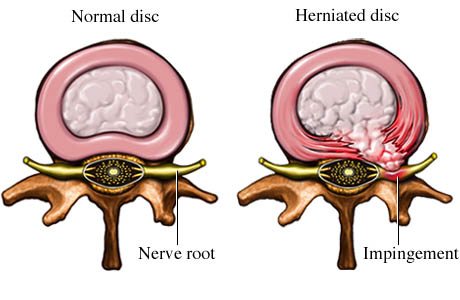
In a car accident, the rubbery discs between vertebrae could be pushed to one side or ruptured (a herniated disc), a serious injury. Disks have a tougher exterior that houses a softer interior that may leak out when the exterior breaks. The rupture or bulge can affect nearby nerves causing pain or numbness in arms or legs. The leaking of the disc material onto the nerves causes extreme pain.
Disc degeneration:
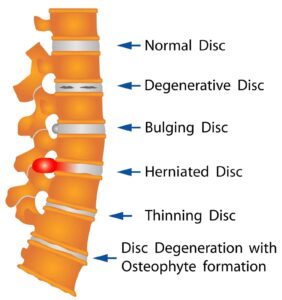
The discs between the bones in your spine wear thin due to the gradual loss of fluid content. As people age, the water content in the disks decreases making them more prone to tearing or rupturing in a car crash. Thus, the older you get, the greater the chance of an injury in an accident.
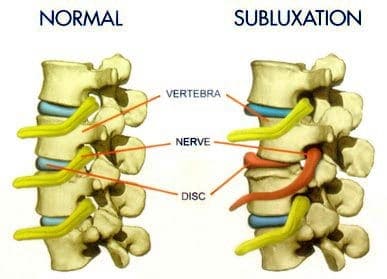
Subluxations:
Subluxation occurs when one or more of your vertebrae move out of place, putting pressure on your nerves. Subluxations of the spine, are commonly called “out of place” or “stuck” vertebrae. Subluxations can interfere with the signals sent through your nervous system. The signal interference causes parts of your body to not function properly. Subluxations in car accidents are common, especially in the neck.
Arthritis:
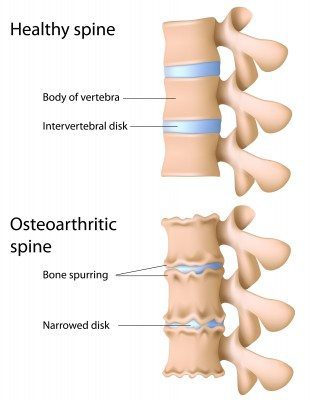
Cartilage, covers the ends of the bones in the joints. Osteoarthritis, the most common form of arthritis, occurs when cartilage deteriorates over time. Osteoarthritis, like disc degeneration, gradually increases over time, affecting the spine. There is no cure, but a healthy lifestyle slows the progressions and eases the pain in the joints. Like disc degeneration, arthritis makes a car accident victim more vulnerable to injury in a crash.
Broken Bones:

In a high impact crash, like in a head on collision, a victim could suffer one or more broken bones in their back. Immediate medical attention should be sought. Do not attempt to move someone with suspected broken bones.
Back pain is a common problem after a car accident. The conditions listed above can be caused or aggravated through motor vehicle collisions.
What Should You Do About Car Accident Related Back Injury?
If your back pain is due to a car accident, seek immediate medical attention. Emergency rooms only x-ray your back to make sure bones are not broken. An MRI is often needed to determine if you suffered a disc injury. If the pain is severe enough, ask your medical provider for an MRI to rule out a disc injury.
If you are experiencing back pain, you can try to treat it with bed rest and over-the-counter medications. If the pain hasn’t improved for three days, you should consult your doctor.
Seek medical attention if your pain:
- Is constant or intense, especially at night or when you lie down
- Spreads down your legs, especially below your knee
- Causes tingling, weakness, or numbness in either or both of your legs
- Is paired with weight loss
- Is paired redness and swelling on your back
Contact 911 and receive immediate medical treatment if your back pain is caused by a high impact collision, causes bowel or bladder issues, or is accompanied by a fever.
If you have been in a high-impact collision, you should also contact an experienced personal injury lawyer to make sure you are fully compensated from a car accident related back injury.
After a serious back or spinal cord injury, legal support can make a major difference. Personal injury attorneys help you pursue compensation for medical bills, lost income, and long-term needs. They begin by evaluating your case, determining fault, and explaining your legal rights while creating a strategy tailored to your situation. Attorneys also collect key evidence such as medical records, accident photos, witness statements, and proof of lost wages to strengthen your claim. They handle all communication and negotiations with insurance companies, who often try to minimize or deny valid claims. If a fair settlement isn’t reached, your lawyer can take the case to court and advocate for you before a judge and jury. Throughout the process, they keep you informed and supported, helping you navigate the legal system so you can focus on recovery.
Back Injury Claims: Medical Costs, Compensation & Legal Hurdles
Back and spinal cord injuries bring long-term medical, financial, and legal challenges. Accurately accounting for both current and future medical expenses—like surgeries, rehab, and adaptive equipment—is key to securing fair compensation. Attorneys and medical experts estimate costs through life care planning, covering everything from hospital bills to in-home care.
Compensation varies widely: first-year spinal cord injury costs can exceed $1 million, with ongoing expenses of $40,000–$180,000 annually. Settlements also factor in lost wages, reduced earning capacity, pain and suffering, and emotional distress. Vocational experts assess whether injured individuals can return to work and how injuries affect long-term income.
Statistics show about 17,800 new spinal cord injuries occur annually in the U.S., mostly from car accidents and falls. Globally, up to half a million people are affected each year, often facing shortened life expectancy and heavy financial strain.
To move a case forward, injury victims should stay organized, follow medical advice, and communicate promptly with their attorneys. Knowing your rights after workplace injuries is vital, since insurers may delay claims or pressure early return to work. Strong documentation and legal support help overcome these obstacles and protect recovery.
Conclusion
Simple back injuries heal themselves after a few days of home treatment. However, a car accident related back injury can take months or years to resolve. In extreme injuries, back pain can be permanent. More severe injuries and damage need the care of an experienced physician. Injuries caused by a high impact collision, such as a car accident, should be dealt with immediately. Consult an Austin back injury accident lawyer to learn your rights if you have a car accident related back injury.

